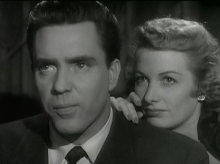 My Amazon review of Theologian Trading Cards:
My Amazon review of Theologian Trading Cards:I really wanted to like this, if only for the novel idea of theologians in a fun card format, but there are just too many negative disappointments that I had to give this a one-star (which more than likely means not many helpful marks. Whatever.)
I could initially go into this with the approach of "well, it didn't have A, or B, or C" (and was my deck missing a Spurgeon card?) but the fact is the problem seems to go a lot further than that in that certain categories just, well, aren't broad enough. You could have had all 300 cards based just on the puritans alone, but instead it seems like all we get is a skimpy selection of different eras of the church, and an unfortunately large serving of Eastern Orthodox and Roman Catholicism (selections it seemed aimed to be more focused on the favorable ones, with not as much attention on the torturing, killing and "comfy chair" variety of Roman Catholics from history - and how is it that Pope Benedict [the one who you'll recall granted plenary indulgences, you know, the unscriptural practice that would make most Reformers spin in their collective graves] manages to make the deck as a very modern figure, but we don't see any other equally important modern theologians of a protestant variety like R.C. Sproul or John Macarthur? What floored me even more was the inclusion of Friedrich Nietzsche and Karl Marx. In a box labeled "Theologian Trading Cards". Keyword being "theologian". What the heck?
To me it feels like this entire presentation and packaging was a misnomer, and a more accurate label should have been something like, "Some theologians cherry-picked from a broad ecumenical swath, some of debatable significance, some of questionable orthodoxy, and some notably of distinctly anti-Christian bent Trading Cards". I'm surprised with some of these wonky characters in the box that he didn't include an Aimee Semple McPherson card or Fred Phelps. Who knows.
Additionally frustrating was the frequency of finding cards with no image. Give me a break!!! How often does that happen with sports cards? "Oooh, trade me for your card with NO PICTURE on it." That was frustrating enough alone to merit the one star and to have me considering returning the set to Amazon. If you can't find a picture for these guys from a Google image search, you do the next best thing: commission someone to do up a quick drawing based on what they think the guy likely looked like! For crying out loud, it doesn't have to be a Rembrandt portrait, just give us a best-guess sketch of the person. Blank images were a huge, huge disappointment.
A final gripe was the packaging, as each 'team' in the box was tightly bound in hard to remove plastic that I had to dig at with a knife to get open, and all along I'm wondering, what exactly was the reason for sealing this entire set, and then within the set itself, sealing up each team? Did that really matter? I don't collect sports cards, but is that how they do it when you buy them in box sets? Do they do that with Pokemon cards or something?
Again, I wanted to like this, but even if there had been some sticks of bubble gum included in the set, the content was just a little too skewed, imbalanced and not enough.














